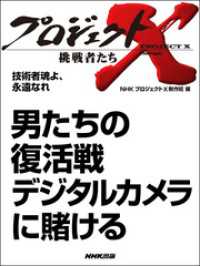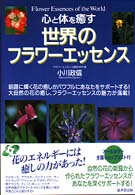- ホーム
- > 洋書
- > 英文書
- > History / World
Full Description
In the 1930s and 1940s Marxist academics and others interested in liberal political reform often faced virulent accusations of treason from nationalist critics. In Arbiters of Patriotism, John Person explores the lives of two of the most notorious right-wing intellectuals responsible for leading such attacks in prewar and wartime Japan: Minoda Muneki (1894-1946) and Mitsui Kōshi (1883-1953) of the Genri Nippon (Japan Principle) Society.As fervent proponents of Japanism, the ethno-nationalist ideology of Imperial Japan, Minoda and Mitsui appointed themselves judges of correct nationalist expression. They built careers out of publishing polemics condemning Marxist and progressive academics and writers, thereby ruining dozens of livelihoods. Person traces Japanism's rise to literary and philosophical developments in the late-Meiji (1868-1912) and Taisho (1912-1926) eras, when vitalist theories championed emotion and volition over reason. Founding their ideas of nationalism on the amorphous regions of the human psyche, Japanists labeled liberalism and Marxism as misunderstandings of the national particularities of human experience.
For more than a decade, government agents and politicians used Minoda's and Mitsui's publications to remove their political enemies and advance their own agendas. But in time they came to regard both men and other nationalist intellectuals as potential thought criminals. Whether collaborating with the government to crush the voices of class struggle or becoming the targets of police surveillance themselves, Minoda and Mitsui came to embody the paradoxically hegemonic yet arbitrary nature of nationalist ideology in Imperial Japan. In this thorough examination of the Genri Nippon Society and its members, Arbiters of Patriotism provides a tightly argued and compelling account of the cosmopolitan roots and unstable networks of Japanese ethno-nationalism, as well as its self-destructive trajectory.








